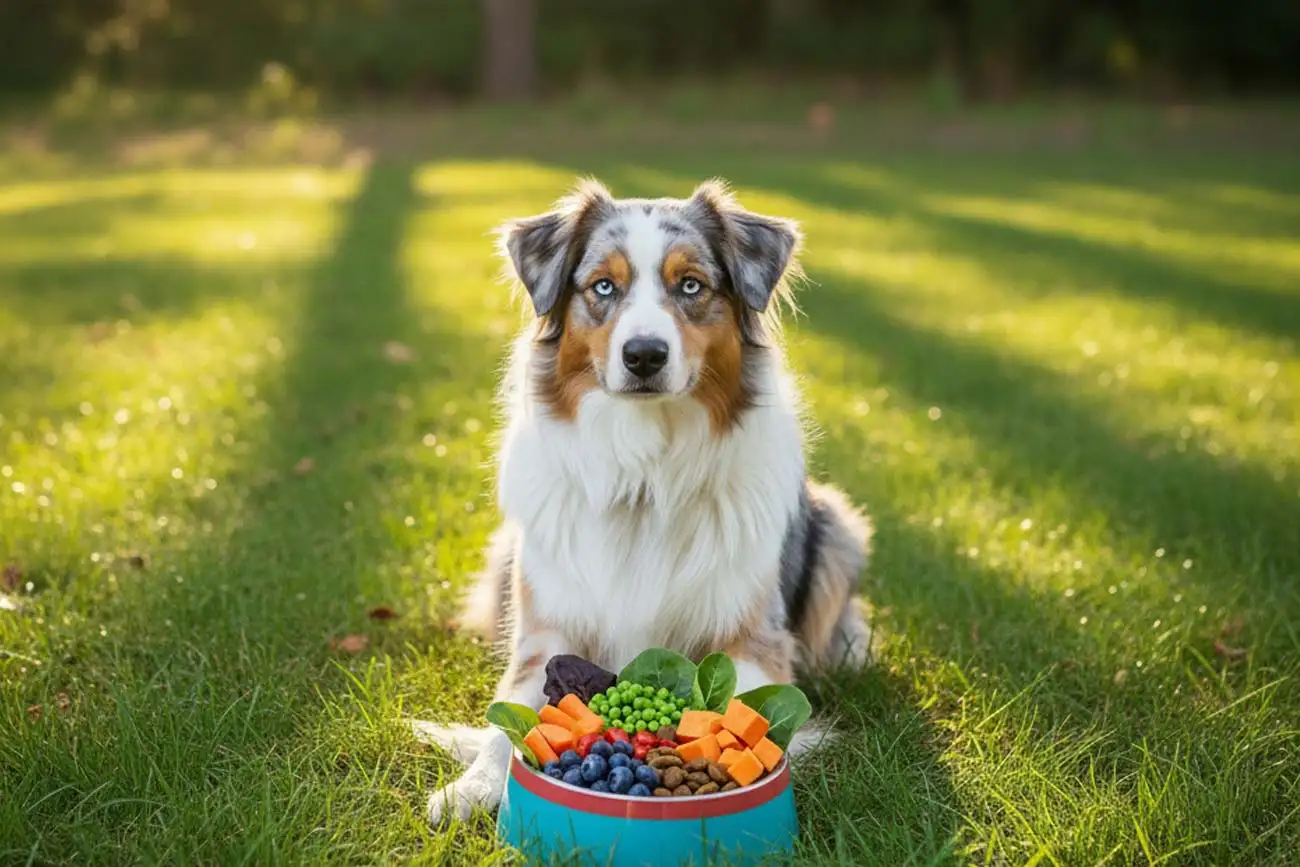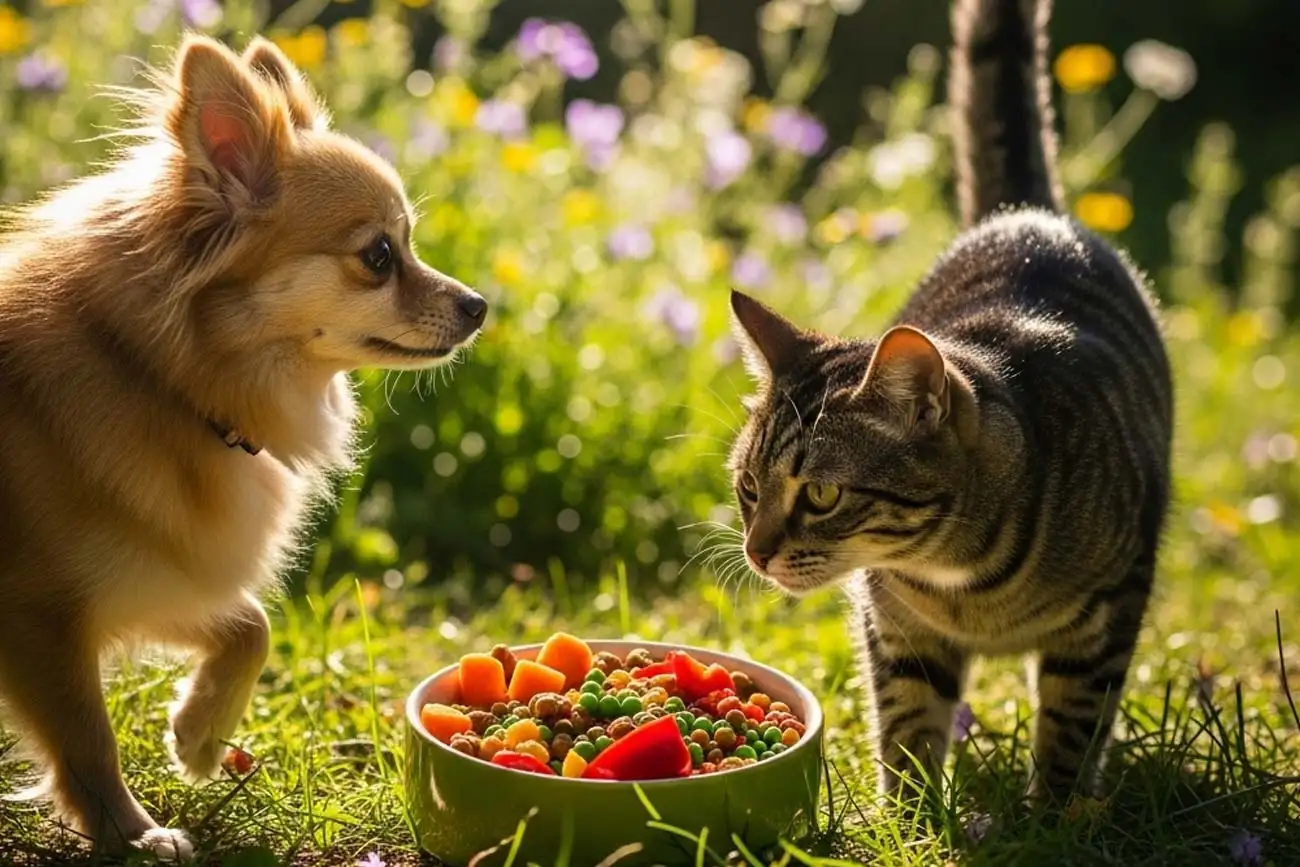
Vegetarian Pet: Risks, Care, and Myths of the Diet
Have you ever stopped to think if a vegetarian pet can truly live a healthy life? The idea, which a few years ago seemed strange even to the most conscious owners, now sparks curiosity and raises intense debates among veterinarians, animal advocates, and lovers of a more sustainable lifestyle.
As the number of people choosing a meat-free diet grows, many want to extend this choice to their four-legged companions. But can dogs and cats, in fact, thrive on a vegetarian diet? What are the hidden risks in this decision, and to what extent do the myths circulating out there hinder more than help?
In this article, we will clearly and directly explore what it means to have a vegetarian pet, which care is essential, and how to separate truths from exaggerations. In the end, you will have not only solid information but also insights that can transform your relationship with your furry friend.
Discover why your pet can transform your life in a unique way!
What is a vegetarian pet?
A vegetarian pet is one that follows a diet without meat and, often, without animal by-products. In the case of dogs, this is a bit more feasible since they are omnivores and can adapt to a wider variety of foods. Cats, on the other hand, are obligate carnivores, meaning they depend on specific nutrients found almost exclusively in animal products.
Just imagine the scene: while you prepare a colorful and nutritious salad, your dog approaches curiously, wagging its tail. Contrary to what many believe, dogs can enjoy part of this menu, provided the right nutrients are present. The challenge is to balance this choice with their biological needs, which are very different from ours.
A common mistake is to think that simply removing meat and offering various vegetables is enough. A vegetarian pet’s diet needs to be carefully planned, preferably with the guidance of a veterinary nutritionist. The lack of quality protein, taurine (in the case of cats), vitamin B12, and other micronutrients can lead to serious health problems.
In summary, the concept of a vegetarian pet goes beyond simply excluding meat: it’s about a diet planned down to the smallest details, capable of meeting all nutritional demands without compromising the animal’s well-being.
Surprising curiosities about vegetarian pets
Did you know that there are already vegetarian and even vegan pet foods available on the market? Some are developed with specific formulas for dogs, ensuring the right amount of proteins and essential amino acids.
Another curiosity is that some owners of vegetarian pets report improvements in breath, coat, and even in the pet’s energy level after transitioning to a meat-free diet. Although these reports are encouraging, science is still working to prove these benefits on a large scale.
It is also interesting to note that in certain countries, such as the United Kingdom and the United States, the number of owners choosing this diet for their dogs is growing. This trend follows the increase in vegetarian and vegan families, who see animal care as an extension of their ethical values.
But beware: not every dietary adaptation works for every animal. While some adapt well, others may experience weakened immunity, weight loss, and even digestive problems. Therefore, before getting excited about the stories circulating online, it is essential to understand that each pet is unique and has its own needs.

Why is this choice so special?
The idea of raising a vegetarian pet touches on ethical, emotional, and even environmental issues. For many owners, cutting out meat is a way to align their personal lifestyle with the care of their pet.
It’s like saying:
“If I don’t contribute to animal suffering, I also don’t want my best friend to need to do so.”
This type of decision to raise a vegetarian pet can also have a positive environmental impact. After all, meat production is one of the sectors that consumes the most natural resources, such as water and grains, and emits large amounts of greenhouse gases.
On the other hand, we cannot ignore that we are dealing with beings with very specific biological needs. The special aspect of this choice, therefore, lies precisely in the balance: seeking alternatives that reflect personal values without compromising the pet’s health and happiness.
When done responsibly, a vegetarian diet can become an experience of an even stronger connection between owner and animal, because it requires care, attention, and constant monitoring.
Challenges, care, and how to help your vegetarian pet
Choosing to raise a vegetarian pet means taking on a huge responsibility. Among the main challenges are:
Ensuring nutritional balance
Plant-based proteins need to be correctly combined to supply essential amino acids.
Monitoring vitamins and minerals
Nutrients such as taurine, vitamin B12, iron, and calcium must be closely monitored.
Observing the pet’s adaptation
Drops in energy, loss of appetite, or digestive problems may indicate that the diet is not working.
Care begins with the choice of food or the homemade diet formulated by a professional. Never improvise. Veterinary monitoring should be constant, with regular exams to check if the animal’s body is getting everything it needs.
A good way to help your pet transition is to introduce new foods gradually, mixing small amounts with the old diet. This way, the body adapts more easily, and you can observe any adverse reactions.
And remember: each animal is unique. While some dogs may do very well on a vegetarian diet, others might not respond the same way. As for cats, in the vast majority of cases, they should not be subjected to this type of dietary restriction, except under very specific conditions and always under veterinary supervision.
In summary
The idea of a vegetarian pet is engaging because it mixes love, ethics, and environmental awareness. But we must not forget that, above all, the priority must always be the animal’s health and well-being.
With information, professional guidance, and a lot of care, it is possible to explore this choice responsibly. The most important thing is to understand that there is no one-size-fits-all solution: each pet has its own story, its needs, and its way of responding to new experiences.
If you are thinking of adopting this practice, do it with responsibility and affection. Your four-legged friend deserves to live a full, happy, and healthy life.
Did you enjoy learning about vegetarian pets? Share this article with other pet lovers and explore more content on our website!


